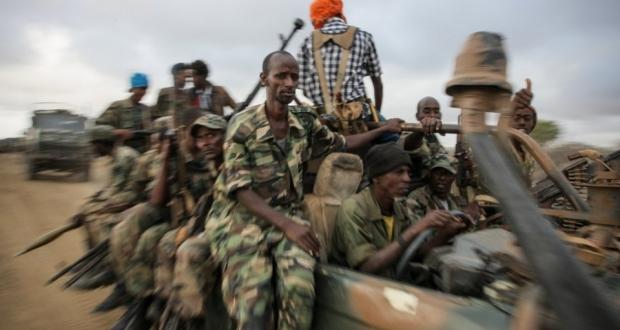Somalis’ memories of twenty-plus years of military dictatorship mean that it is not statelessness that bothers them, but state power perceived to be in the hands of a rival clan.
The debate over which political system is best suited for Somalia has entered a new phase. Twenty years ago the EU commissioned a study of the possible decentralised political structures for the country, written by London School of Economics experts led by the late anthropologist Professor I.M. Lewis. “Most Somalis we have spoken to want a system from which all can benefit” the report said. The United Nations Assistance Mission in Somalia (UNSOM) organised a conference in Mogadishu to discuss the experiences of Jubaland, South-west and Puntland in the state formation process.
Federalism is currently the basis for Somalia’s nascent state (re)-formation. But one of the disadvantages of decentralised unitary systems, as noted by the LSE researchers, is that they “create[s] even stronger and potentially more rapacious central government than under federation” whereas one of the disadvantages of federation is that “a powerful federal government is prone to monopolise foreign aid to reinforce its own power at the expense of the regions”.
In a policy brief recently released by the Mogadishu-based Heritage Institute (based on a survey carried out in five cities; Mogadishu, Baidoa, Kismayo, Galkayo and Garowe) it was found that “a substantial majority still views the current federation process as deeply flawed, because it is a largely elite-driven and externally facilitated scheme that promotes clan identity at the expense of citizenship” and that “a significant number of participants noted that social reconciliation is a prerequisite to a successful implementation of federalism in Somalia”.
The Arabic word for reconciliation (sulux) joined the Somali political lexicon in 1990 when Siyad Barre regime formed Guddiga Suluxa (the reconciliation committee), which armed opposition groups fighting the regime had viewed as a ploy for Siyad Barre to remain in power. The term was replaced by a Somali word with the same meaning: dib-u heshiisiin (reconciliation). In post-1991 Somalia the word implies the involvement of a third party that will help two sides to reconcile.
The conflict in Somalia has always been between Somali politicians and not traditional leaders. For reconciliation to begin and have a chance to succeed at the national level it always needs a third, non-Somali party. At the regional level political leaders may achieve it, as happened in 1993 when general Aideed and Colonel Abdullahi Yusuf Ahmed signed the Mudug agreement (still holding) or in Erigave when the late Somaliland president, Mohamed Egal, facilitated inter-clan reconciliation in 1995. Only when politicians refrain from exploiting a rift between two neighbouring clans or sub-clans can traditional leaders try to solve the problem through a customary law or the Sharia and a combination of both.
Many Somalis are confused by political theory words such as ‘federalism’, ‘decentralised unitary state’ and ‘secession’, not because they misunderstand the meaning of these terms, but because those who invoke them do so with their clan, rather than the nation’s interest in mind.
Somalis’ memories of twenty-plus years of military dictatorship mean that it is not statelessness that bothers them, but state power perceived to be in the hands of a rival clan. They remember that unchecked state power can be used to enrich or marginalise clans. When some Somalis call for social reconciliation they are oblivious to substantive power in the hands of the political class, and they have misplaced confidence in the efficacy of Somali customary law to resolve political problems.
State formation (maamul-samayn) is the new term in the Somali political discourse used to make sense of the evolution of Puntland and Somaliland administrations as well as the aspirations of Somalis in the north, south-central, south-west and Jubaland regions
Somali clans favour different political systems as the basis for government, but members of the political class are not asking questions about how political power at national and state levels could be wielded without ignoring lessons learned in Hargeisa, Garowe and Mogadishu – three Somali cities whose political elites favour opposing systems to concentrate power and resources in the hands of a few at the centre of state or national government. Twenty four years after state collapse in Somalia, the basic political question remains unasked: can Somalis agree on a political system without fearing state power will turn into clan or sub-clan power?
Liban Ahmad is the editor of warsoomaali.com
